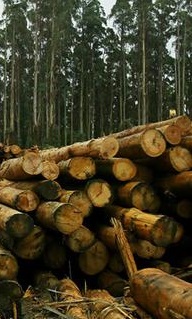Doubt thrown on NSW logging
 The New South Wales native logging industry is facing a critical review of its future.
The New South Wales native logging industry is facing a critical review of its future.
A report by the Independent Pricing and Regulatory Tribunal (IPART) has found the sector is not “economically viable”.
The government-owned Forestry Corporation of NSW’s native timber operations have been posting significant financial losses, raising concerns about its sustainability.
IPART's triennial review of the Forestry Corporation revealed the native timber division has been losing money for over a decade.
One key factor identified was the corporation’s practice of delivering timber to sawmills at prices below the cost of harvesting and transporting it.
Contracts locking in these prices are set to expire in 2028. The report recommended the state government review the “long-term feasibility” of native logging if economic performance does not improve after renegotiating contracts.
The report comes amid growing calls for change, as Victoria and Western Australia have already ceased native logging, leaving NSW and Tasmania as the last states continuing large-scale operations.
Forestry Corporation reported a $29 million loss in its native timber division for the 2022-2023 financial year, bringing total losses to $73 million over four years.
Forest Alliance NSW says the economic cost comes alongside immense damage to biodiversity and forest health.
However, industry groups have defended the sector. The Australian Forest Products Association NSW says native logging is critical to the housing, energy, manufacturing, and mining sectors, rejecting IPART’s economic conclusions.
The IPART report also highlighted environmental concerns, including the impact of logging on biodiversity, the state’s climate resilience, and fire severity.
It cited findings from the NSW Natural Resources Commission that forests are showing “stress and degradation” and noted that alternatives such as plantation timber and engineered products are increasingly viable.
Environmental groups, including the North East Forest Alliance and the Nature Conservation Council of NSW, are urging the government to transition to plantation-based forestry.
The Minns government’s Independent Forestry Panel is currently reviewing the industry’s future.
Environmental advocates say the costs of continuing far outweigh the benefits, both economically and environmentally.
Forestry Corporation has accepted IPART's recommendations but pointed out the analysis did not factor in all revenue sources.
The future of native forest logging in NSW will hinge on its ability to demonstrate economic viability as the 2028 contract deadline approaches.







 Print
Print


